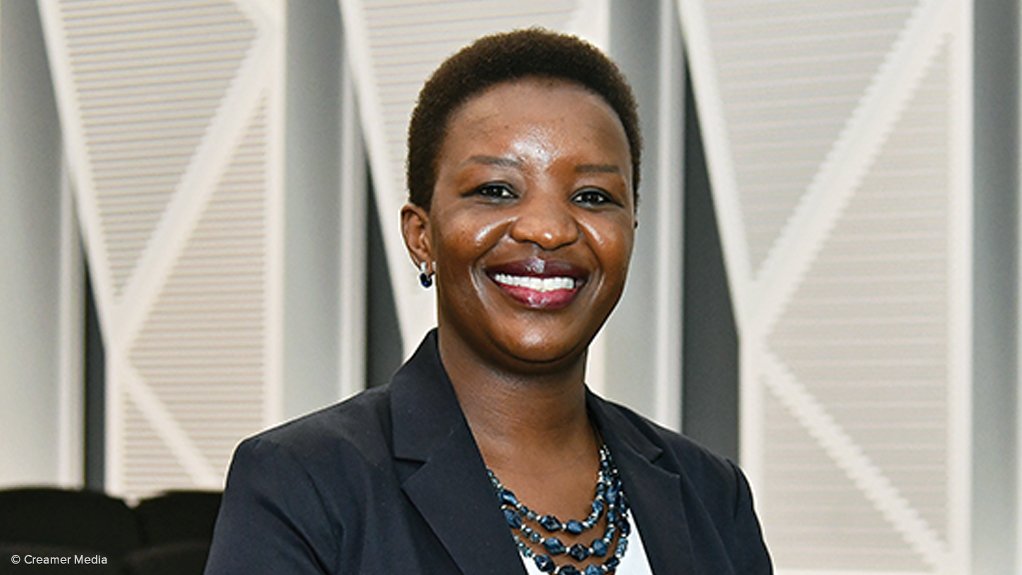/ MEDIA STATEMENT / The content on this page is not written by Polity.org.za, but is supplied by third parties. This content does not constitute news reporting by Polity.org.za.
The figures are startling: coal exports processed through Richards Bay Coal Terminal (RBCT) last year dropped to 51-million tonnes, the lowest in 30 years and down from 70-million tonnes in 2020. The most coal exported through the terminal, which has capacity to export 91-million tonnes, was in 2017 with 76.4-million tonnes.
Transnet's severe operational issues, cable theft, the derailment of a train and the unavailability of locomotives, as well as the 12-day strike by Transnet workers, contributed to the low volumes.
The real economic damage to the economy is immeasurable but coal prices were at historic highs last year as the European Union banned coal imports from Russia after it invaded Ukraine. While South African coal miners benefited handsomely, it was actually a significant lost opportunity because they were simply unable to export to the fullest due to the inefficiencies in our freight rail system.
It’s not dissimilar to the commodities “super bull run” that took place from the early 2000s and again from 2011 as China drove the global recovery from the 2008 financial crisis with a massive industrialisation drive during which its demand for commodities seemed limitless but SA was unable to fully take advantage because of policy uncertainty in the mining sector.
It's an appalling situation and one which BLSA is working hard to rectify through our assistance to Operation Vulindlela.
It was in this context that BLSA hosted an engagement with Transnet CEO Portia Derby on Tuesday last week and we appreciate the efforts by the leaders of state-owned enterprises and government departments to work more closely with the business community. These engagements also help us to appreciate the challenges they’re facing and we remain firmly committed to supporting all reform efforts aimed at improving efficiencies.
While Derby’s presentation was under the Chatham House Rule and we cannot divulge details, the issues in the public domain make it clear that she faces a monumental task in addressing the challenges and that urgent intervention is required.
Opening both the freight rail system and our ports – which are ranked among the worst in the world in terms of costs and waiting times – to private-public partnerships, as well as using other means to encourage private sector participation in the industry, is critical to resolving the problems.
The status quo is simply not working and while there may be short-term measures available to temporarily alleviate the main pressure points, the long-term solution is for government to partner with business, which can introduce efficiencies, capital and expertise.
BLSA’s assistance with reforms in the transport sector are channelled mainly through Operation Vulindlela, the unit in the Presidency that works with National Treasury to overcome obstacles to reforms, and the current focus is on providing expertise on operations and infrastructure in freight and logistics.
OV is working across a number of priority reforms in the freight transport sector to improve the performance of ports and rail infrastructure. This includes enabling third-party access to the freight rail network and facilitating private sector participation in container terminals, as well as establishing an economic regulator to ensure completion in the transport sector. A core issue to resolve in order to undertake market reform and fulfil the objectives of the White Paper on National Rail Policy is addressing the backlog in investment and maintenance of existing infrastructure and improving operational performance on strategic corridors.
For meaningful change to occur we need to accelerate the efforts for private sector participation and improve on what’s already happening – for example, the two-year time period for access to the freight rail network is far too short to hold appeal for private sector operators.
This is a drum BLSA will continue to beat for as long as is necessary. A combination of lack of expertise and lack of finance makes it impossible for government to rectify things on its own.
With a cabinet reshuffle being imminent, BLSA hopes leaders are appointed who are fully committed – without ideological constraints – to resolving the problems that are holding up progress.
BLSA welcomes the National Energy Crisis Committee’s announcement that the IRP will be launched in March but this is supposed to be living document that is updated every two years, I write in News24 Business. Business believes that the IRP should be produced by an independent expert body with the necessary capacity.
It’s easy to lose sight of the bigger picture given the extent of loadshedding but no amount of political rhetoric can change the scientific facts that climate change is happening and the effects on southern Africa are going to be devastating, I write in Business Day. Water is the primary medium through which climate change is felt in South Africa. The KZN floods last year were evidence that South Africa is woefully underprepared. Our climate-resilient infrastructure urgently needs to be upgraded while government’s bureaucratic structures from local municipality level upwards need to be streamlined to cope with emergency situations.
Issued by BLSA CEO Busi Mavuso
EMAIL THIS ARTICLE SAVE THIS ARTICLE ARTICLE ENQUIRY
To subscribe email subscriptions@creamermedia.co.za or click here
To advertise email advertising@creamermedia.co.za or click here











